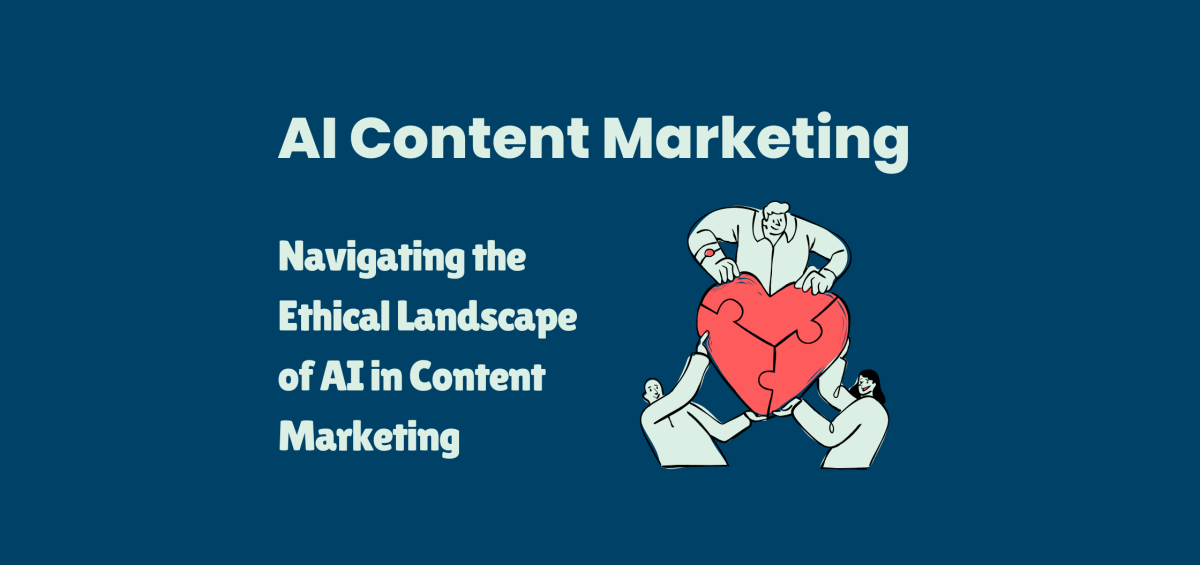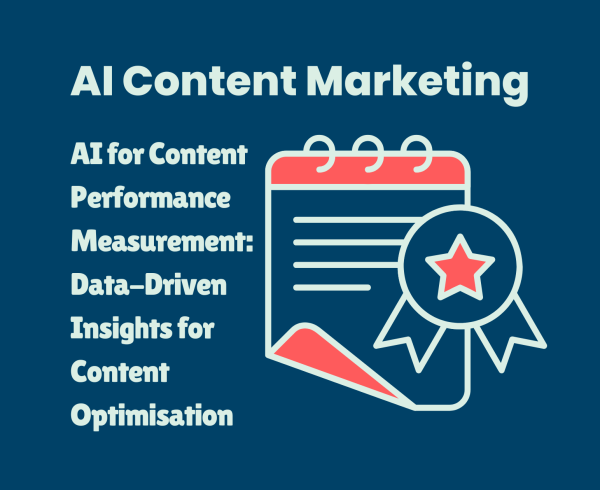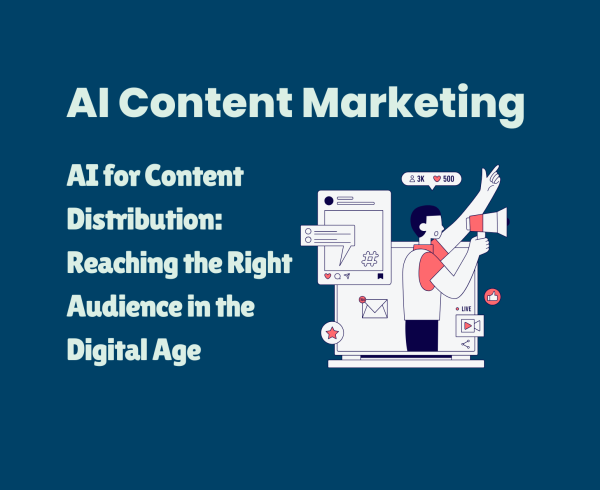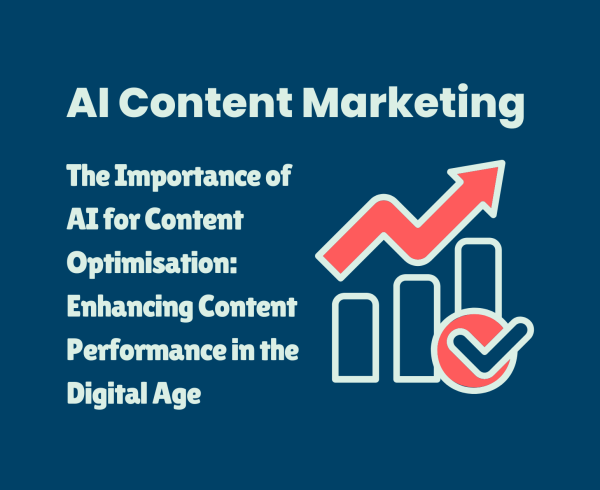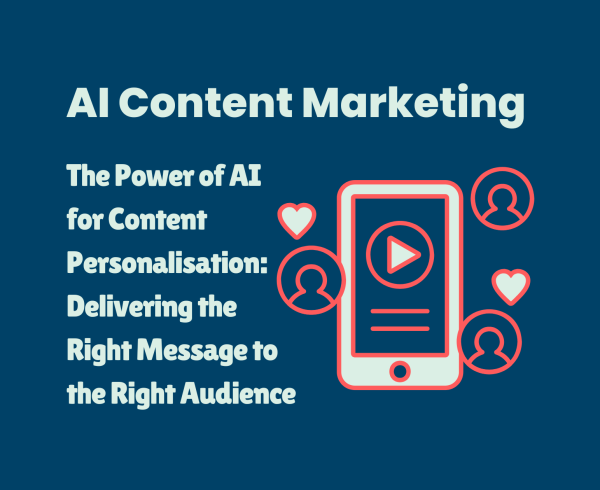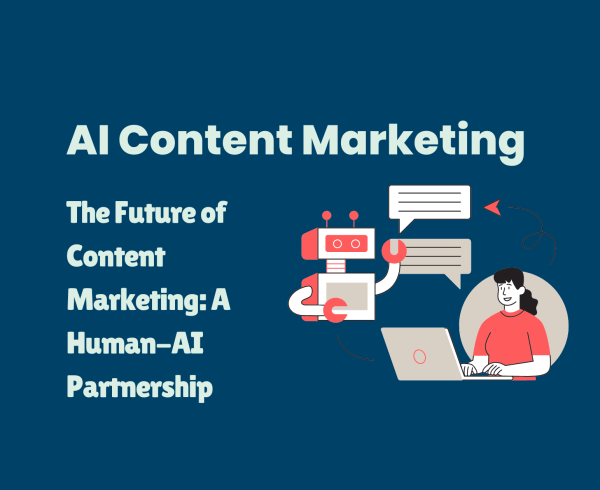The rapid advancement and adoption of AI in content marketing present exciting opportunities, but also raise important ethical considerations. As AI becomes more sophisticated, it’s crucial for marketers to use these technologies responsibly and transparently. This article explores the key ethical challenges and provides guidance on navigating the ethical landscape of AI in content marketing.
- AI Bias and Fairness
AI models are trained on vast datasets, and if these datasets reflect existing biases, the AI system can perpetuate and even amplify those biases in the content it generates or distributes. This can lead to discriminatory or unfair outcomes, potentially alienating certain audience segments.
Mitigation Strategies:
- Data Diversity: Ensure training datasets are diverse and representative of the target audience, including various demographics, perspectives, and cultural backgrounds.
- Bias Detection and Mitigation: Implement tools and techniques to detect and mitigate bias in AI models, such as fairness metrics and bias audits.
- Human Oversight: Maintain human oversight in the content creation and distribution process to identify and correct potential biases.
- AI and Content Plagiarism
AI writing tools can generate human-quality text, raising concerns about plagiarism. While AI can rephrase and restructure information, it’s essential to ensure that the generated content is original and doesn’t infringe on copyright laws.
Mitigation Strategies:
- Plagiarism Detection Tools: Utilize plagiarism detection tools to check AI-generated content for originality and ensure it doesn’t duplicate existing works.
- Attribution and Citation: Properly attribute and cite any sources used by the AI, including data sources and pre-existing content.
- Transparency: Be transparent with the audience about the use of AI in content creation and clearly distinguish between AI-generated and human-written content.
- AI and Content Ownership
The question of who owns AI-generated content is complex and evolving. Is it the developer of the AI tool, the user who provides the input, or a combination of both? Clear legal frameworks and guidelines are needed to address ownership rights and responsibilities.
Mitigation Strategies:
- Terms of Service: Carefully review the terms of service of AI tools to understand ownership rights and usage restrictions.
- Legal Counsel: Consult with legal counsel to navigate copyright issues and establish clear ownership agreements when using AI for content creation.
- Industry Standards: Advocate for the development of industry standards and best practices regarding content ownership in the age of AI.
- AI and Content Transparency
Transparency is crucial when using AI in content marketing. Audiences should be informed about the use of AI and how it impacts the content they consume. This fosters trust and allows for informed decision-making.
Mitigation Strategies:
- Disclosure: Clearly disclose the use of AI in content creation and distribution, explaining how AI is being used and its potential impact on the content.
- Explainability: Provide insights into how AI models work and the factors that influence their decisions, making the AI more understandable and trustworthy.
- Open Communication: Encourage open communication with the audience about AI, addressing their concerns and questions transparently.
- AI and Content Accessibility
AI should be used to enhance content accessibility for all audiences, including those with disabilities. AI-powered tools can help create content that is accessible to people with visual, auditory, cognitive, and motor impairments.
Mitigation Strategies:
- Accessibility Guidelines: Follow accessibility guidelines, such as WCAG (Web Content Accessibility Guidelines), when creating and distributing AI-powered content.
- Assistive Technologies: Ensure AI-powered content is compatible with assistive technologies, such as screen readers and voice recognition software.
- Inclusive Design: Design AI systems with accessibility in mind, considering the needs of diverse users from the outset.
- AI and Content Privacy
AI relies on data, and it’s essential to protect user data privacy when using AI in content marketing. Marketers should be transparent about how they collect, use, and store user data, and ensure they comply with data privacy regulations.
Mitigation Strategies:
- Data Privacy Policies: Implement clear and comprehensive data privacy policies that explain how user data is collected, used, and protected.
- Data Security: Implement strong data security measures to protect user data from unauthorized access and breaches.
- User Consent: Obtain user consent before collecting and using their data, providing users with control over their information.
- AI and Content Manipulation
AI can be used to manipulate content, creating deepfakes and other forms of synthetic media that can be used to spread misinformation or deceive audiences. This raises ethical concerns about the potential for AI to be used for malicious purposes.
Mitigation Strategies:
- Deepfake Detection: Develop and implement technologies to detect deepfakes and other forms of manipulated content.
- Media Literacy: Educate audiences about deepfakes and other forms of synthetic media, helping them critically evaluate the content they consume.
- Ethical Guidelines: Establish ethical guidelines for the use of AI in content creation, prohibiting the use of AI for manipulation and deception.
- AI and Content Responsibility
While AI can automate many tasks, human oversight and responsibility remain crucial in content marketing. Marketers should be accountable for the content they create and distribute, regardless of whether it was generated with the assistance of AI.
Mitigation Strategies:
- Human-in-the-Loop: Maintain a human-in-the-loop approach to AI, ensuring human oversight and intervention in critical decision-making processes.
- Ethical Frameworks: Develop ethical frameworks and guidelines for the use of AI in content marketing, outlining responsible practices and accountability.
- Continuous Monitoring: Continuously monitor AI systems for potential ethical issues and take corrective action when necessary.
The Future of Ethical AI in Content Marketing
The ethical landscape of AI in content marketing is constantly evolving. As AI technology advances, new ethical challenges will emerge, requiring ongoing dialogue and collaboration between marketers, technologists, ethicists, and policymakers.
To ensure the responsible and ethical use of AI in content marketing, it’s essential to:
- Foster Ethical Awareness: Educate marketers about the ethical implications of AI and provide them with the knowledge and tools to use AI responsibly.
- Develop Ethical Guidelines: Establish clear ethical guidelines and best practices for the use of AI in content marketing, promoting transparency, fairness, and accountability.
- Promote Collaboration: Encourage collaboration between marketers, technologists, ethicists, and policymakers to address the ethical challenges of AI in content marketing.
- Embrace Continuous Learning: Stay informed about the latest developments in AI ethics and adapt content marketing practices accordingly.
By embracing ethical principles and practices, marketers can harness the power of AI while mitigating its potential risks, ensuring that AI is used to enhance the content marketing experience for everyone involved.

